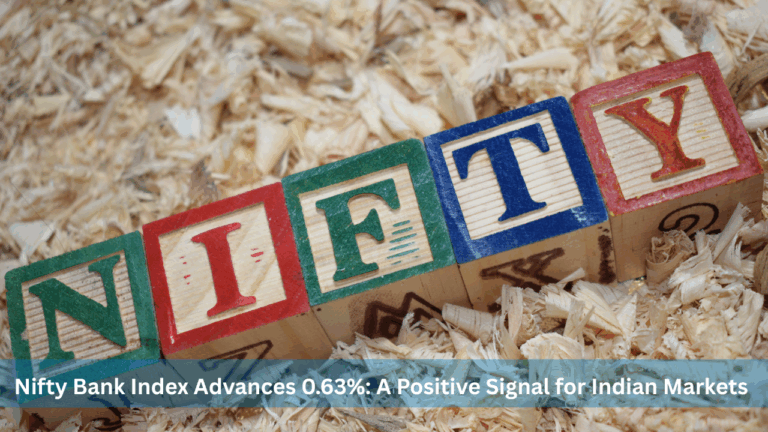Impact of Tariff Policies on Stock Market Volatility in 2025
As we move through 2025, one of the most talked-about financial topics is the impact of global tariff policies on the stock markets. Governments around the world, particularly the United States and China, have restructured trade relationships by introducing new tariffs and adjusting existing ones. These changes have brought both uncertainty and opportunity, especially in emerging economies like India.
In this article from Your Story, we explain how tariff policies are influencing market movements, why volatility has increased, and what Indian investors should know.
What Are Tariffs and Why Do They Matter?
Tariffs are essentially taxes imposed on imported goods and services. Governments often use tariffs to protect domestic industries or respond to economic or political disputes. While they serve specific policy goals, tariffs can also raise production costs, reduce profits for companies, and disrupt global supply chains.
When major economies adjust their tariff structures, stock markets often react immediately. In 2025, markets have shown heightened sensitivity to such announcements, especially those involving the U.S., China, and key trade blocs like the European Union.
How 2025 Became a Year of Trade Tension?
The first quarter of 2025 witnessed a series of tariff hikes and retaliatory duties among leading economies. For instance, the U.S. imposed fresh tariffs on electric vehicles and semiconductors from select countries, citing national security and market fairness concerns. In response, affected nations introduced countermeasures that impacted raw materials and manufactured goods.
This chain reaction led to uncertainty in global trade. Companies reliant on international imports and exports found themselves recalculating logistics, profit margins, and pricing models. As uncertainty rose, investors responded with caution. The stock markets reflected this unease with sharp swings in key indices.
For example, the S&P 500 and Dow Jones saw significant dips in April and early May, triggered by tariff-related news. Asian markets, including India’s Nifty 50 and Sensex, mirrored this volatility, particularly in sectors like technology, automotive, and manufacturing.
Sector-Wise Impact of Tariff Policies
Some industries are more exposed to the effects of tariffs than others. Here’s a closer look:
- Automotive Sector: Tariffs on imported parts and vehicles have disrupted manufacturing timelines. Companies like Tata Motors and Mahindra faced increased costs for imported components, impacting margins.
- Technology Sector: With many tech firms depending on international suppliers for semiconductors and hardware, tariffs have squeezed profits and delayed product launches.
- Consumer Goods: Increased tariffs on imported food, clothing, and electronics have led to higher retail prices. Consumer sentiment has shifted, especially in urban areas.
- Logistics and Shipping: The cost of moving goods internationally has risen. Logistics companies are adjusting delivery routes and contracts, often at a financial cost.
On Your Story, we continue to track these developments with expert commentary from industry professionals.
What Does This Mean for Indian Investors?
For Indian investors, tariff-related market movements are a signal to adopt a cautious yet strategic approach. Here are some practical takeaways:
- Diversification is Key: Investors should spread their investments across multiple sectors. This helps reduce exposure to risk from any single industry impacted by tariffs.
- Stay Informed: Market trends are closely tied to geopolitical developments. Following credible financial platforms like Your Story can help investors make timely decisions.
- Opportunities in Domestic Sectors: With tariffs making imports costlier, local industries—particularly in manufacturing, agri-tech, and renewable energy—could see a rise in demand. This presents potential investment opportunities.
- Focus on Long-Term Goals: While volatility may seem alarming in the short term, experienced investors understand that markets tend to stabilise. Patience and long-term planning remain essential.
- Consult Financial Advisors: For those new to investing or unsure about how tariffs affect their portfolio, professional guidance can offer clarity.
India’s Position in the Global Trade Context
India continues to negotiate trade agreements and partnerships that can potentially mitigate the effects of external tariff shocks. The country’s focus on “Atmanirbhar Bharat” (self-reliant India) aims to strengthen domestic production, reduce import dependency, and boost exports.
According to market analysts featured on Your Story, India is better positioned than many other developing economies to weather trade-related turbulence. However, much depends on how policymakers handle ongoing negotiations and how businesses adapt to changing global demand.
Final Thoughts
The impact of tariff policies on the stock market in 2025 is a reminder that global politics and economics are deeply interconnected. While short-term market volatility can be unsettling, it also brings opportunities for those who are prepared.
By staying informed, focusing on fundamentals, and maintaining a diversified investment strategy, investors in India can navigate this uncertain environment more confidently. Platforms like Your Story aim to support this journey by delivering timely, accessible, and accurate financial content.
As the world continues to adapt to shifting trade dynamics, Indian investors and entrepreneurs have a unique chance to learn, pivot, and grow—turning challenges into long-term gains.







